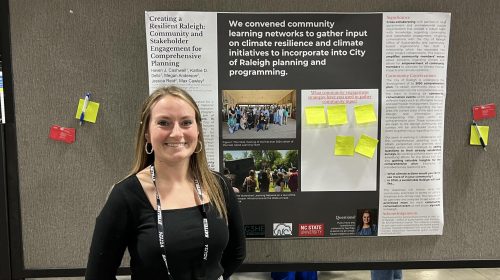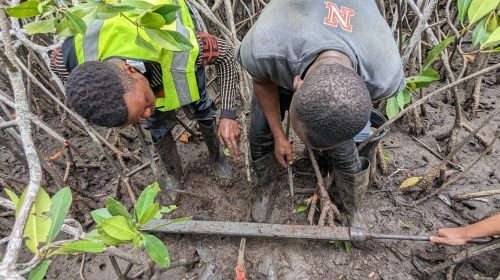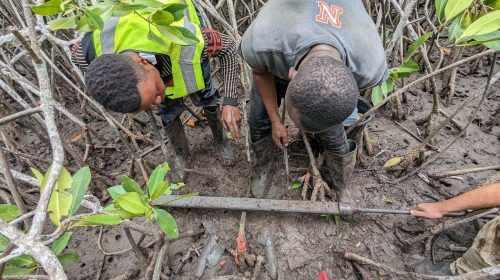Researchers from the Consortium for Climate Risk in the Urban Northeast (CCRUN), a NOAA Climate Adaptation Partnerships (CAP) team, published an article titled, “Building Equitable Research Partnerships: Learning From a Community Climate Resilience Grant Program.” CCRUN principle investigator Robin Leichenko and researchers Katherine Cann, Jeanne Herb, and Majorie Kaplan co-authored the article. They assess the design and implementation of the Community Climate Resilience (CCR) Grant competition, which CCRUN launched in 2022. From this analysis, they identify promising strategies for improving equity outcomes within co-production relationships and small grant programs. The article was published in the Special Issue on Equity in Co-Production of the journal Community Sciences.
The article discusses how knowledge and services produced collaboratively between scientists and local stakeholders have benefits for communities responding to evolving climate risks, including more accessible and relevant research. Funding agencies, including those at the federal level in the U.S., have increased requirements for co-produced research and service development, prompting relationships between university researchers and community partners. However, co-production partnerships are not always equitable. While the CCR program attended to multiple dimensions of equity, the authors identified a number of impediments to equitable co-production partnerships, including time and funding limitations and difficult institutional requirements. The authors suggest streamlining access to funding, increasing transparency in competition design, promoting realistic funding options, and fostering communities of practice to improve equity outcomes in similar small grant programs and co-production relationships related to climate adaptation, resiliency, and other fields. These insights are useful to help inform the refinement of CAP’s small grants efforts. They may also be helpful guidance for other federal grant programs interested in launching small grants programs of their own.
Access the open source article »
Access the full special issue on Equity and Co-Production »
For more information, contact Katherine Cann.









